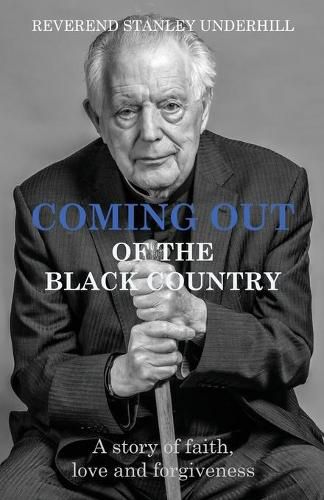Readings Newsletter
Become a Readings Member to make your shopping experience even easier.
Sign in or sign up for free!
You’re not far away from qualifying for FREE standard shipping within Australia
You’ve qualified for FREE standard shipping within Australia
The cart is loading…






Growing up in the highly industrialised, economically impoverished region of the Black Country in the 1920s and 1930s, Stanley Underhill found himself in a society shaped by cultural ignorance, (working) class-consciousness and ideals of masculinity which seethed as insidiously as the ‘satanic mills’ that dominated the landscape of his childhood. As a gay man, this experience led Stanley to a struggle with his own sexuality that was to consume most of his life.
In his early 50s, in spite of the ubiquitous homophobia and hypocrisy of the Church and State, he gave in to that inner voice that had persisted since he was a teenager and was ordained a priest. Coming Out of the Black Country is a story of survival, forgiveness, and a testament to the power of personal faith and love.
Towards the end of Stanley Underhill’s autobiography, he quotes the advice that Polonius offers to his son, Laertes, in Shakespeare’s Hamlet: ‘This above all, to thine own self be true.’ He could hardly have anticipated that this advice would precipitate in himself a lifetime of self-examination and searching as he grappled to reconcile his faith and sexuality.
Stanley Underhill was born in 1927, in the Black Country. When he was only a toddler, his family was plunged into poverty. On leaving school on his fourteenth birthday, he became a compositor at a printing works in Birmingham. In 1945, he was called up and served in the Royal Navy as a Naval nurse. After demobilisation in 1948, he studied and qualified as an accountant and practised until 1976, when he joined the Anglican Society of St. Francis. After five years with the Society, he was ordained and served in the dioceses of Southwark, Lichfield and Canterbury, and finally as a Chaplain in the Diocese of Europe. In 2003, he became a Brother at the London Charterhouse where, in his mid-eighties, he began writing his autobiography: Coming Out of the Black Country
$9.00 standard shipping within Australia
FREE standard shipping within Australia for orders over $100.00
Express & International shipping calculated at checkout
Growing up in the highly industrialised, economically impoverished region of the Black Country in the 1920s and 1930s, Stanley Underhill found himself in a society shaped by cultural ignorance, (working) class-consciousness and ideals of masculinity which seethed as insidiously as the ‘satanic mills’ that dominated the landscape of his childhood. As a gay man, this experience led Stanley to a struggle with his own sexuality that was to consume most of his life.
In his early 50s, in spite of the ubiquitous homophobia and hypocrisy of the Church and State, he gave in to that inner voice that had persisted since he was a teenager and was ordained a priest. Coming Out of the Black Country is a story of survival, forgiveness, and a testament to the power of personal faith and love.
Towards the end of Stanley Underhill’s autobiography, he quotes the advice that Polonius offers to his son, Laertes, in Shakespeare’s Hamlet: ‘This above all, to thine own self be true.’ He could hardly have anticipated that this advice would precipitate in himself a lifetime of self-examination and searching as he grappled to reconcile his faith and sexuality.
Stanley Underhill was born in 1927, in the Black Country. When he was only a toddler, his family was plunged into poverty. On leaving school on his fourteenth birthday, he became a compositor at a printing works in Birmingham. In 1945, he was called up and served in the Royal Navy as a Naval nurse. After demobilisation in 1948, he studied and qualified as an accountant and practised until 1976, when he joined the Anglican Society of St. Francis. After five years with the Society, he was ordained and served in the dioceses of Southwark, Lichfield and Canterbury, and finally as a Chaplain in the Diocese of Europe. In 2003, he became a Brother at the London Charterhouse where, in his mid-eighties, he began writing his autobiography: Coming Out of the Black Country